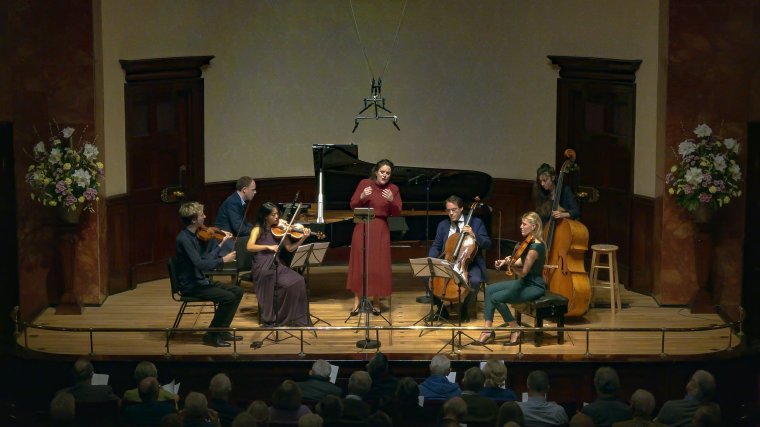The year 2024 is the centenary of Gabriel Fauré’s death and the prospect is bringing this elusive French genius out of his habitual half-lights. A frequent visitor to London – he shared a British patron with Edward Elgar – he would probably have heard his own music at Wigmore Hall (called the Bechstein Hall at the time).
There could be nowhere better to kick off the commemorations and soprano Louise Alder’s recital of French song with chamber ensemble put him not only in context but in technicolour.
His La bonne chanson is that rare thrill, a happy song cycle, filled with the blaze of springtime, sunshine and birdsong. It’s perhaps his most personal work, written during a love affair with Emma Bardac, an excellent singer whose favourite among Fauré’s songs was the mellifluous “Lydia”; he wove its melody through La bonne chanson as a leitmotif for her.
Both were married to others, but not especially bothered about it, and several years later she left her husband… For Claude Debussy.
Louise Alder’s voice in many ways suits this marvellously, with its purity, precision and power, and in the unusual chamber version, by Fauré himself, the Doric String Quartet, bassist Laurène Durantel and pianist Joseph Middleton formed an intimate ensemble around her.
The Doric Quartet (who here performed with a different first violinist – Tim Crawford instead of Alex Redington) is expert at periodesque creation of atmosphere, helping to cast fresh light on the music’s fast-flowing, subtle beauties.

Yet Alder seemed more comfortable in the worlds of her other composers, the forthright sensuality of Maurice Ravel’s Shéhérazade and some of Joseph Canteloube’s irresistibly bucolic Songs of the Auvergne, with string players swapped for woodwind ensemble.
She was at her most vivid embodying the ecstatic longing for exoticism in Ravel (Fauré’s star pupil), and sparkled her way through Canteloube’s Auvergnat dialect songs, which involve calling a sheepdog, feeding a donkey and doubling up as tambourinist, besides conjuring the sheer gorgeousness of “Baïlèro”.
George Strivens’ arrangement for wind quintet and piano could have overwhelmed in this acoustic, but Alder effortlessly matched the increased power of the sound.
Rachel Clegg’s oboe and cor anglais evoked the melismas of the Middle East; Max Welford’s clarinet transformed into a French shepherd’s pipe for Canteloube; at the piano, Joseph Middleton’s fluid touch was a joy.
All this plus “La captive”, one of Berlioz’s finest solo songs with obbligato cello. Too much French song? Too much gorgeousness? Impossible.


